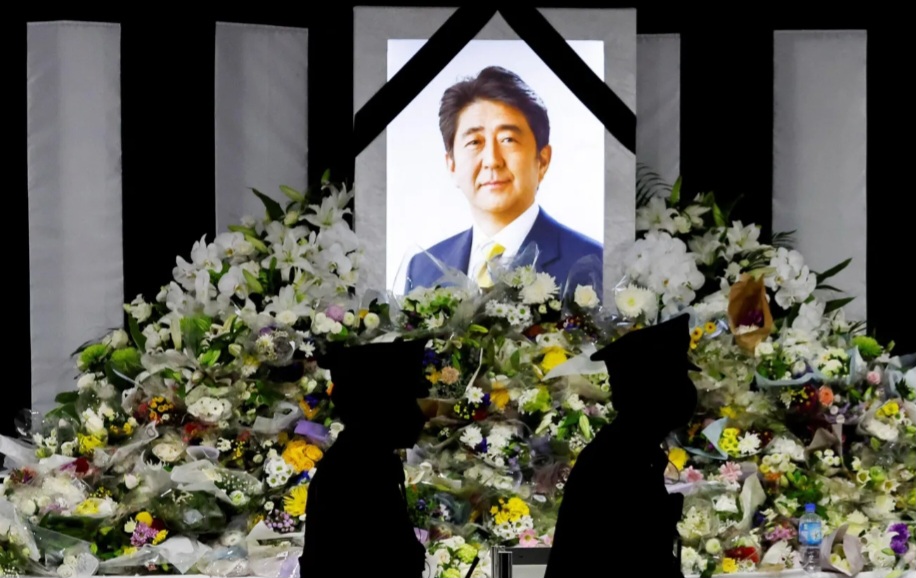
Crystal Dike
The man accused of assassinating Japan’s former prime minister, Shinzo Abe, has pleaded guilty on the first day of his trial, which opened on Tuesday, October 28.
Tetsuya Yamagami, 45, told a court in Tokyo that “everything is true,” according to local media reports. He admitted to using a homemade firearm to shoot Abe during a political campaign event in the western city of Nara in 2022.
Abe, 67, was struck several times and later died in hospital, sending shockwaves around the world. The late leader was known for his hawkish foreign policy stance and his economic reform program, popularly dubbed Abenomics.
Yamagami told investigators he targeted Abe because he believed the former prime minister had promoted the Unification Church, also known as the “Moonies.” He claimed the church had financially ruined his family after his mother made donations amounting to about 100 million yen ($660,000).
The revelation of ties between Abe’s Liberal Democratic Party (LDP) and the church triggered widespread controversy, leading to investigations and the resignation of four ministers.
In March 2025, a Tokyo court ordered the disbandment of the Unification Church, stripping it of its tax-exempt status and mandating the liquidation of its assets.
Yamagami’s mother, who remains a follower of the church and is expected to testify, reportedly told Japanese media that her son’s actions had only strengthened her faith.
The trial, which began Monday, is expected to conclude in January 2026. While Yamagami has admitted to the killing, his lawyers are disputing charges under Japan’s arms control laws, arguing that his homemade weapon does not meet the legal definition of a firearm.
Japan, which has one of the world’s lowest levels of gun violence, has since tightened regulations on homemade weapons following Abe’s assassination.
